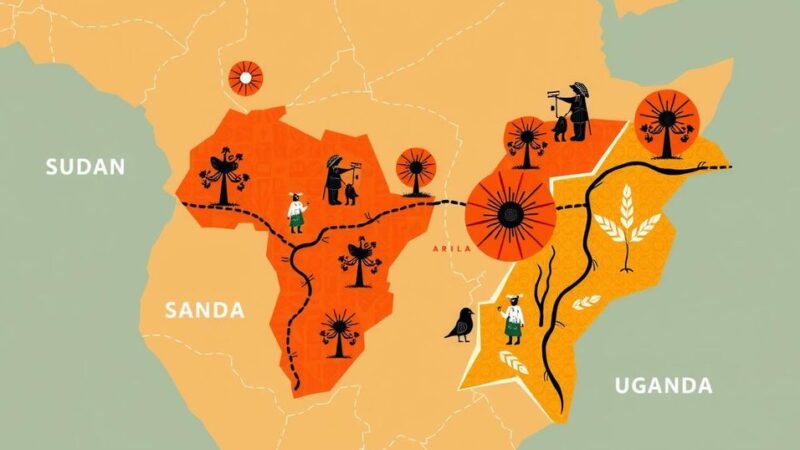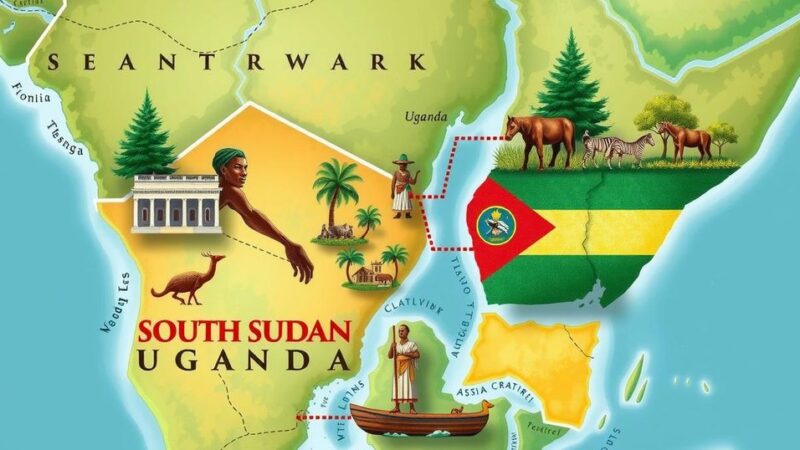Tropical storm Dikeledi is heading towards Mozambique after causing fatalities and damages in Madagascar and Mayotte. The storm has prompted a red alert in Mayotte, which is still recovering from Cyclone Chido. Heavy rains and winds are expected, with local residents advised to exercise caution. Emergency services have mobilized to support affected communities as conditions worsen.
Tropical storm Dikeledi is advancing towards Mozambique after having struck Madagascar and Mayotte, causing significant fatalities and disruptions. Initially forming as a cyclone, it brought strong winds and heavy rains, leading to at least three confirmed deaths in Madagascar. As Dikeledi weakened to a severe tropical storm, it passed by Mayotte, where a red alert remains in place due to its vulnerability to the elements. Mayor Francois-Xavier Bieuville emphasized the fragility of the territory and the necessity of the ongoing red alert.
Mayotte continues to recover from Cyclone Chido, which devastated the region last month, resulting in at least 39 deaths and over 5,600 injuries, alongside extensive property damage. With Dikeledi still close by, residents were advised to exercise caution amidst still strong winds and rainfall, although no further casualties have been reported from this latest storm. The forecast suggests that Dikeledi could intensify again as it traverses the warm waters of the Mozambique Channel.
Local emergency services reported that several homes were damaged and some villages were flooded. Some residents in areas like Mbouini expressed their emotional toll from the repeated storms, noting the continuous threats posed by the rainy season ahead. Amidst the red alert, which restricts mobility, many have utilized the opportunity to prepare their homes, while more than 4,000 personnel have been mobilized to assist the exposed communities.
As the storm approaches Mozambique, detrimental weather conditions are anticipated in the Nampula region. Meteorological experts at Meteo-France suggest that the potential capabilities of Dikeledi could lead to destructive winds and torrential rains, echoing patterns seen in previous cyclone seasons. This year’s abnormally high surface water temperatures in the Indian Ocean have been linked to increased storm intensity, accentuating the challenges for the region’s resilience against natural disasters.
Tropical storms and cyclones are common in the Indian Ocean region, particularly from November to March. Their intensity can be exacerbated by rising sea surface temperatures, a phenomenon increasingly linked to global warming. Significant cyclones, such as Chido, have previously resulted in substantial casualties and property damage, stressing the importance of disaster preparedness and response for vulnerable areas like Madagascar and Mayotte. With the infrastructure often unprepared for extreme weather events, ongoing assessments and immediate emergency responses are crucial.
The tropical storm Dikeledi has triggered a renewed focus on the ongoing vulnerabilities faced by Madagascar and Mayotte, particularly following the recent devastation caused by Cyclone Chido. The situation underscores the significance of disaster preparedness and community resilience in face of increasingly severe weather patterns linked to climate change. The advancement of Dikeledi towards Mozambique poses further risks, advising residents to remain vigilant and prepared for potential adverse conditions.
Original Source: www.arabnews.com






